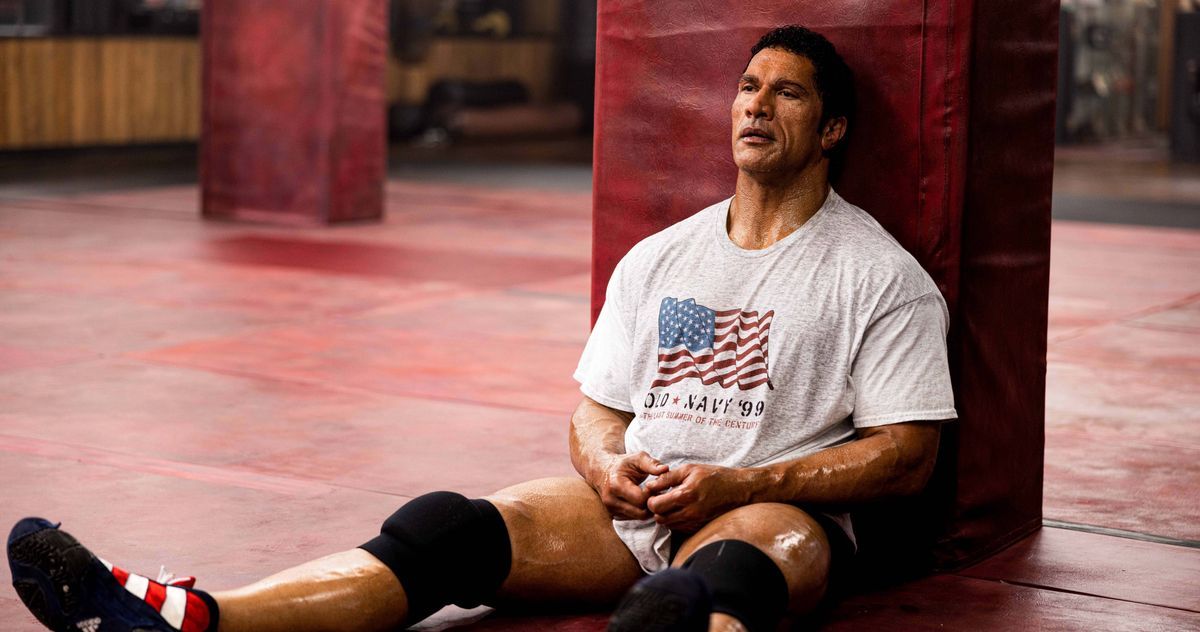
"Quite possibly the softest, gentlest movie you'll ever see about a dude whose job is to beat the crap out of other dudes, Benny Safdie's The Smashing Machine pares down the story of Mark Kerr (Dwayne "The Rock" Johnson), a mixed-martial arts pioneer, into a showcase for its leading man's intensely internalized performance. The film has the structure of a biopic, but at times seems determined to stifle viewers' expectations."
"Movies about people who fight for a living tend to show how the violence bleeds out into the world outside the ring. In The Smashing Machine, the combat is depicted in bloody detail, but out in the real world, we only sense the potential for mayhem. It's nearly an hour into the film that the Rock tears a door in half like it was a UPS mailer. Arguably, that's all we need to see."
The Smashing Machine focuses on Mark Kerr's transition from wrestler to early mixed-martial-arts figure between 1997 and 2000. The film frames Kerr as personable and articulate, able to explain the sport to casual audiences while also describing the evolutionary thrill of inflicting greater pain on opponents. Kerr recalls back-to-back victories at the 1997 Brazilian Vale Tudo championships, describing the sensation as feeling like a god. Benny Safdie's direction pares the story into a biopic structure that limits explicit spillover of violence into everyday life, favoring hints over indulgence. The combat scenes are depicted in bloody detail, yet real-world mayhem remains implied. Dwayne "The Rock" Johnson delivers an intensely internalized performance with notable magnetism.
Read at Vulture
Unable to calculate read time
Collection
[
|
...
]